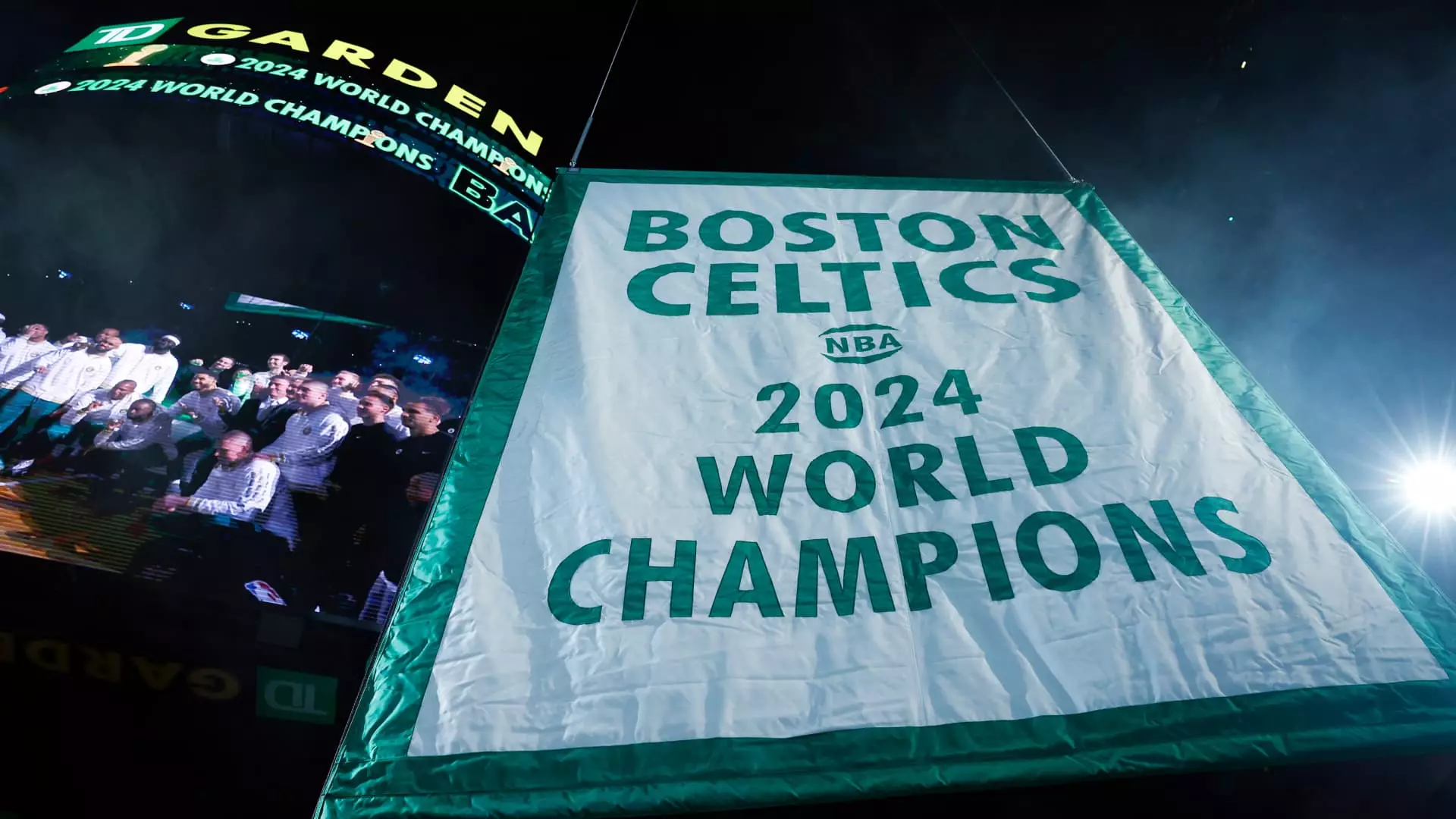Bill Chisholm’s recent acquisition of the Boston Celtics for a staggering $6.1 billion reflects more than just the price of a sports team; it symbolizes the ever-inflating value of professional sports franchises in America. This monumental transaction eclipses the previous record held by the NFL’s Washington Commanders and bears testament to the rapid commercialization and corporatization of sports. Yet, one must question if the glitzy price tag equates to sustainable success or if it is an overpriced gamble for Chisholm and his consortium of investors.
For a franchise steeped in rich history—18 championship titles to its name—the Celtics deserve their high valuation. But at what cost? The Celtics, like many storied franchises, are not merely sports teams; they are cultural institutions, steeped in community ties and local pride. The assumption that a wealthy investment group can preserve the franchise’s legacy amid substantial profit motives may lead to a misalignment with the fans’ expectations and traditions. Boston deserves ownership that understands not just the economics but the emotional fabric binding the team to its city.
Local Loyalty or Corporate Detachment?
Chisholm’s self-proclaimed “die-hard” status as a Celtics fan and his upbringing in the Boston area suggest a comforting narrative of local loyalty. However, investor enthusiasm often does not translate to genuine passion or community commitment. The NBA, with private equity firms now joining the ownership ranks, raises a critical question: Are community values at risk of being overshadowed by profit ambitions?
While Chisholm stated his intent to embrace the responsibility that comes with such ownership, this sentiment must be viewed through a practical lens. The differences between a lifelong fan and a corporate mogul can be stark. Chisholm’s wealth alone cannot guarantee the sensitivity and awareness necessary to navigate the emotional bonds that Boston fans maintain with their team. The expectations of Boston’s loyal followers are unique; they demand authenticity, not merely success measured by a few shiny trophies.
A Capitalist Shift in Sports Dynamics
The Celtics’ sale reflects a broader trend within the sports industry: an increasing reliance on private equity investments. In an era when media deals are swelling exponentially—like the NBA’s recent $76 billion agreement—it becomes apparent that traditional ownership models are evolving. However, as valuations skyrocket, this shift risks placing franchises into the hands of distant investors who may prioritize financial returns over community relationships.
This evolving landscape raises concerns about the integrity of team ownership. With the skyrocketing prices forcing families out of ownership, it’s hard to ignore the implications of corporate interests dictating the fate of teams once rooted in communal bonds. What happens when teams become just another asset on a corporate balance sheet? Will they soon prioritize profit margins over the aspirations of their cities and the legacy of their history?
The High Stakes of Ownership
Chisholm’s comments on his commitment to the Celtics fundamentally suggest a kindle of hope. However, owners must present an impressive balance between financial foresight and ethical responsibility. With a $1 billion stake by the private equity firm Sixth Street accompanying this deal, the situation morphs into a high-stakes gamble. Financial investment often precedes extensive risk assessments—will the owners prioritize balance sheets over the honor of representing Boston?
Investments in professional sports are inherently high-risk; they come with a perpetual demand for winning seasons and playoff runs, not to mention the mounting pressure from stakeholders. The ultimate measure of success cannot be relegated to mere financial snapshots, but rather the emotional well-being of the fans and the social fabric that intertwines the team with its community. Winning championships must resonate with the authentic voices of fans, not just echo through corporate profits.
Will the Celtics Stay True to Their Roots?
As the Celtics prepare for this transition, the pivotal challenge remains clear: can this ownership group preserve the franchise’s spirit while navigating the intricacies of modern capitalism? Bill Chisholm, despite his local origins, must contend with the underlying systems that prioritize monetary gain. The city’s relationship with the team goes beyond the court—it’s a matter of identity and pride for a city marked by its strong sports culture.
The true test lies ahead: Will the Boston Celtics maintain their legacy while adapting to an evolving landscape steeped in economic ambition? The coming seasons will be crucial, not only for the on-court success of the team but for the fulfilment of an enduring promise to Boston’s devoted fans.


Leave a Reply